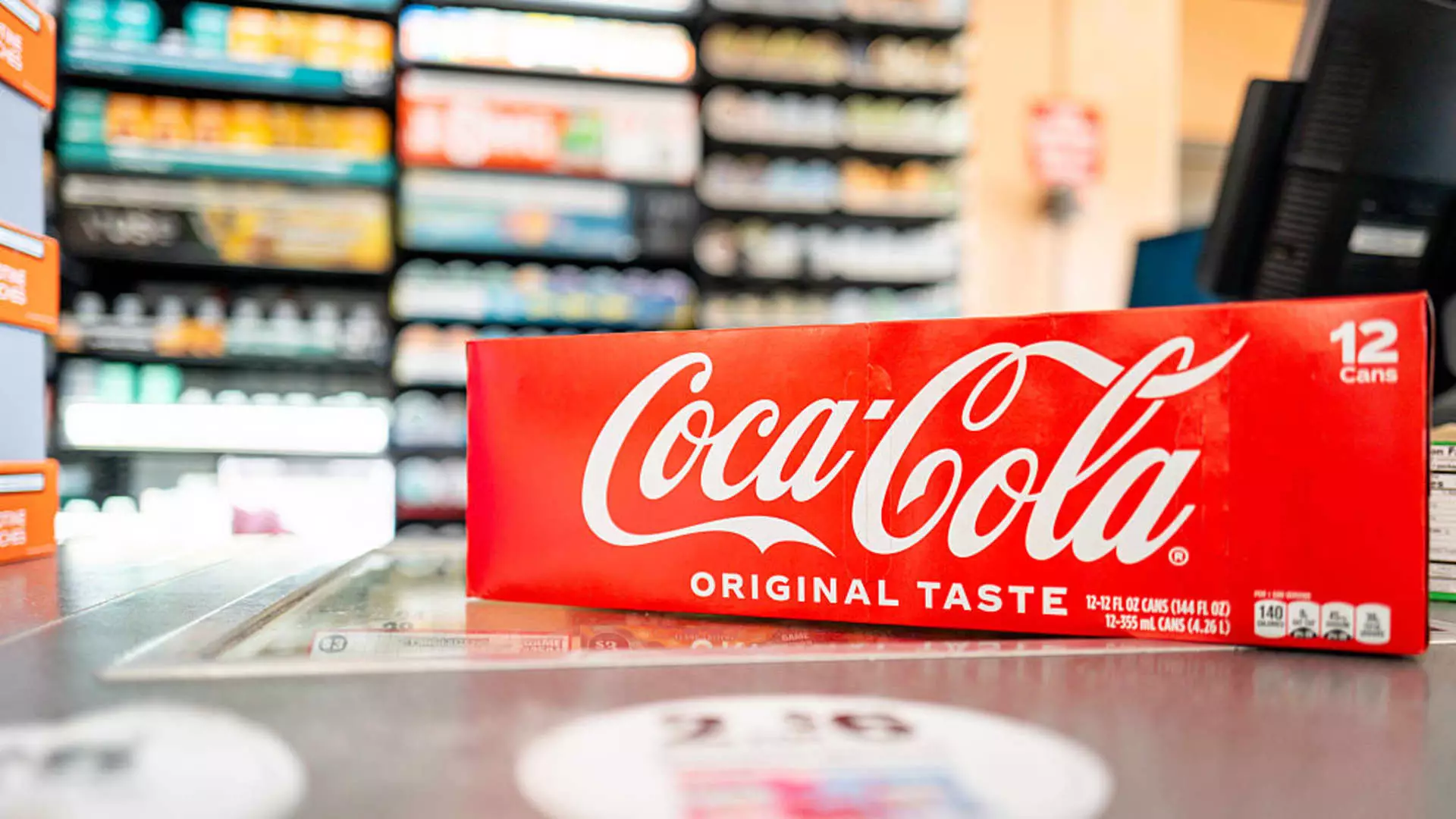Why Coca-Cola’s Latest Earnings Signal a Dangerous Shift in Consumer Loyalty

Coca-Cola’s recent quarterly results paint an almost celebratory picture that, on the surface, appears to underscore resilience. The company surpasses analysts’ expectations with adjusted earnings per share of 87 cents and revenues reaching $12.62 billion—figures that seem to suggest a robust performance. Yet, a closer examination reveals a more troubling narrative: growth driven not by genuine demand, but by strategic pricing and market realignments amid declining volume figures. The celebrated numbers obscure cracks in consumer loyalty, particularly in core markets like North America and Latin America, which are showing troubling signs of fatigue.
What’s striking is the seeming disconnect between revenue growth and volume decline. A 1% increase in net sales, coupled with a 5% organic revenue growth, might suggest strength—yet the volume metrics tell a different story. In North America, demand for Coke’s flagship product fell by 1%, indicating that consumers are purchasing less but perhaps paying more per unit. Elsewhere, Latin America experienced a 2% volume drop, and in Asia-Pacific, a 3% decline—hardly signs of a brand with unstoppable momentum. This pattern indicates a shift where consumers, under economic pressure, are reducing quantity rather than switching to competitors, an ominous sign for long-term brand loyalty.
Market Dynamics and Consumer Confidence Under Duress
The broader economic environment cast a pall over Coke’s operations. CEO James Quincey admits that economic uncertainty and geopolitical tensions are eroding consumer confidence. While the company managed to report modest improvements in some markets, this is a fragile recovery—one that relies heavily on strategic adjustments rather than intrinsic brand strength. The uplift in Europe and the United States is encouraging on paper, but it’s driven by short-term initiatives, including targeted marketing and pricing strategies aimed at affordability rather than genuine consumer engagement.
The decline in sales among Hispanic consumers, triggered by social media rumors, underscores the fragile relationship between brand reputation and consumer loyalty. Coke’s denial about reporting undocumented workers seems to be a PR smokescreen that temporarily boosted sales, but it highlights the vulnerability of reliance on public perception. When trust erodes, even a global giant like Coca-Cola can see demand evaporate unexpectedly. This vulnerability reveals the precarious nature of Coca-Cola’s market positioning in a society increasingly skeptical of corporate motives and social issues.
The Underlying Threat to the Classic Coca-Cola Brand
Despite technological and marketing innovations, Coca-Cola’s core product remains vulnerable. The reported decline in sparkling soft drinks—down 1% globally—is alarming. While the company plans to introduce a cane sugar version of its famed cola in the U.S., this is a cautious move rather than a bold reinvention. Authenticity and consumer preference are shifting away from mass-produced soft drinks towards healthier and more diversified options. Coke’s “water, sports, coffee, and tea” segment remains flat, reflecting the stagnation of product lines that once drove growth. The decline in juice and dairy segments further underscores the erosion of Coke’s traditional product ecosystem.
What truly worries skeptics like myself is Coke’s overreliance on price hikes to sustain revenue figures. Such tactics may delay certain decline trends temporarily but do little to rebuild genuine demand. The company’s forecast for a modest 3% upward EPS growth for the year suggests a cautious stance—one that might indicate an awareness of the changing tides but an inability or unwillingness to adapt quickly enough. If consumer loyalty continues to weaken, these financial figures could quickly turn toxic, revealing the limitations of a brand resting on nostalgia and global scale rather than innovation and consumer trust.
Final Thoughts: The Fragile Illusion of Market Power
Coca-Cola’s latest earnings report is a stark reminder that financials are an inadequate measure of true market health. Behind the impressive revenue figures lies a less glamorous reality: a beverage giant struggling to keep consumers loyal in an increasingly skeptical, health-conscious, and socially aware world. While the company has managed to patch some holes in its financial armor, the cracks in its core brand—particularly in the face of declining volumes and a shifting consumer landscape—are becoming more evident. If Coca-Cola hopes to sustain its dominance, it must pivot from short-term tactical strategies toward authentic innovation and rebuilding trust. Otherwise, its legendary market position may be more fragile than its numbers suggest, and the next downturn, whether economic or social, could prove too much to sustain.





